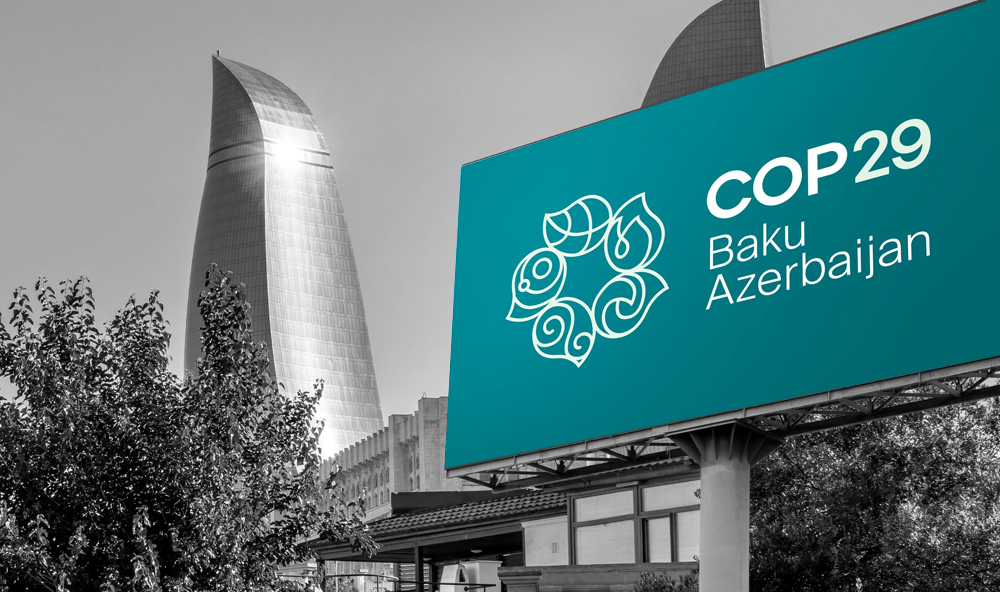On the road to COP29 in Baku: What to expect other than more climate catastrophes? - Habib Maalouf
The Conference of the Parties (COP 29) is being held amid raging wars on the one hand and catastrophic and unusual floods on the other, the latest being the floods that struck Europe, especially Spain. The same can be said about the conference held the years before.
These floods are undoubtedly a consequence of global warming, which increases the temperature of the Mediterranean Sea and leads to a rise in evaporation. The higher the atmosphere’s temperature is, the greater is its ability to retain humidity. This generates longer droughts, more fires, and more intense rainfall and flooding. In Spain, an entire year's worth of rain fell in less than half a day. And while it is true that similar events occurred in the past, they happened at intervals of several decades, and have now become more frequent and their destructive capacity greater.
Today, nobody can claim that they were not warned or that they did not expect it. The international reports of the 6 relevant governmental bodies that had been dealing with the climate change issue for more than a quarter of a century (one report being issued every five years) were clear. The world, its scientists, and its rulers are aware of this reality and have approved the first international agreement to combat climate change since 1992. Since then, the rise in global temperatures has reached new record heights and disasters and their severity increased every year! So far, 28 climate summits have been held, yet the gap between pledges and the rise in global temperatures continues to grow instead of closing.
Despite it all, what should we look for and what to expect from this year’s COP29?
The subject of financing is certainly both pivotal and problematic for this year’s negotiations... especially since financing the second phase post-2025 will be difficult and doomed to fail due to the breakdown of trust between developing and developed countries that failed to fulfill their promises to pump one hundred billion dollars annually starting in 2020. This is especially true since the losses and the cost of expected damage are three times greater than previous estimates.
Last year, the COP held in Dubai closed with a declaration to “transition away from fossil fuels”. While no one believed this vague pledge, COP 29 must, if it ever aimed to achieve some sort of progress, determine implementation mechanisms for this agreement by outlining specific procedures and deadlines. But the question remains: where will this be integrated? In mitigation programs? Or what we call “nationally determined contributions”? Countries that were considered “developed” had previously failed to respect their commitments, especially those related to the binding Kyoto Protocol of 1979. Consequently, what about the fate of non-binding contributions then?!
How will COP29 tackle losses and damage?
The conference in Baku is supposed to provide a propitious occasion to address this matter. This topic was almost the only victory achieved for developing countries during the past two summits. In Baku, the parties are supposed to review the Warsaw International Mechanism for Loss and Damage, which has truly enhanced our general understanding of what constitutes loss and damage and the different ways in which they can manifest. Guidance will also be provided on the early operation of the “Santiago Network”, which aims to stimulate technical assistance on loss and damage. An overview on how to establish and operate the new Loss and Damage Fund will be given as well. The conference is also supposed to discuss the first report of the fund, assess the progress that was made, and establish eligibility requirements and criteria determining who should pay, how to direct the funds and to whom. The priority is to make sure that the Loss and Damage Fund does not become a project-based fund where access to financing takes a long time...while the nature of disasters requires providing rapid support to countries affected by loss and damage.
In addition, the list of items on the agenda that must be addressed is rather expansive. Some have high hopes for Article 6 regarding the development of carbon markets, even though negotiations on this issue have been ongoing for a long time to no avail.
Parties will also hold discussions on the global adaptation goal, building on the work of experts who started developing indicators to measure progress on this front. Several other issues related to agriculture and gender will also be discussed. New headlines about what is now dubbed the “just transition” are also emerging, as it has become the newest most attractive term for marketing renewable energy technology; developing countries still have not succeeded in making it one of their rights, which could also constitute a form of compensation owed by rich industrialized countries in order to achieve climate justice.
In order to identify international trends and the extent to which countries are committed to fight climate change, we must look into how the recent elections taking place in half of the globe (and the geopolitical context) can affect these discussions... namely the American elections, which may bring to the foreground a president who did not believe in the issue of climate change and withdrew from the Paris Agreement, or one who adhered to the agreement but not to its content, as is generally the case of major powers when it comes to their responsibility and gas emissions.
The current global geopolitical context is extremely complex and fraught with tension. Conflicts and wars are rampaging around the world, and the waves of elections in different countries have led to stricter budgetary adjustments, making international climate cooperation more stunted.
The United Nations must then examine how to link the twenty-ninth Conference of the Parties to other negotiations and to the broader environmental agenda, notably the three international agreements concluded in Rio in 1992 (climate, biodiversity, and desertification), which are also holding their own Conferences of the Parties during this year’s last trimester. Climate change negotiations are not the only matter on the agenda; There will also be negotiations regarding biodiversity and desertification as well.
Climate change and biodiversity are two sides of the same coin. COP16 on Biodiversity, which was recently held in Colombia, emphasized the interconnectedness between the two negotiating tracks and the necessity of merging them in one way or another. The issue of reducing global emissions must go hand in hand with the protection of ecological and natural systems in general as well. In fact, this planet’s oceans and forests can absorb about half of global human emissions if we succeed in preserving them and in reducing emissions.
When talking about the transition from fossil energy (which is already depleted) to renewable energy, we forget that renewable energy technologies require rare earths as well. The impact of exploration (and construction of mines) on biodiversity must also not be overlooked. Just yesterday, for example, the US President approved a federal permit to build a new lithium mine for a project in Nevada, despite pledges by environmentalists to file a lawsuit over the exploration plan. They claimed that this plan will lead to the extinction of an endangered wildflower in addition to posing a threat to the cultivation of the rare black wheat… However, exploration supporters stressed that it would help accelerate the production of a key mineral used to manufacture batteries for electric cars and to store electricity generated by solar panels and wind turbines, which contribute to reducing greenhouse gas emissions. Global demand for lithium is expected to grow six-fold by 2030 compared to 2020, when what we truly need is to adopt a civilizational model that requires less energy, before we start looking into energy transition. There is no denying that the only alternative to fossil fuels is none other than the dangerous nuclear energy, if we remain adamant on maintaining a consumption model that is heavily reliant on a colossal amount of energy. This is especially true if developing countries want or are capable of consuming the same amount of energy used in advanced industrial countries at the country or individual level.
A major meeting for climate change negotiations is expected to take place in The Hague in December, where the International Court of Justice will hold a session to issue an advisory opinion on states’ obligations with regard to climate change, at the request of the United Nations General Assembly last year. And while it may not be binding, this advisory opinion will nonetheless serve as a guide for international and national courts to navigate the upcoming disasters.
Some hint to the fact that conferences were being held for the past three years in regions classified as oil-producing countries and that conference presidents were influencing the discussions, agendas, conclusions, and the preparation of the summits final statement drafts... etc. However, seasoned observers know that this is far from being a new phenomenon, and that the influence of the major powers (and big companies) has been a constant in all negotiations regardless of where they may be held. Poland has previously hosted more than three sessions in the past, one of which took place in Warsaw in 2013 and was described as the “Coal Summit,” due to the European country’s heavy reliance on coal. Oil countries’ influence on climate and its summits is nothing new, just as the mere mention of “transitioning away from fossil fuels” in the final statement of last year’s summit in Dubai cannot be considered the beginning of fossil fuels renunciation.
Climate summits that were held more than a quarter of a century ago taught us that declarations are one thing, but commitments are definitely another.
Finally, a noticeable incident took place yesterday (a week before the Baku climate summit). Affected people threw mud at the King of Spain during his visit to the city that was struck by a major flood due to climate change. Will climate disasters born from dominant human and economic systems be the gateway to a new global awareness that will uproot the so-called global system and its harbingers?



